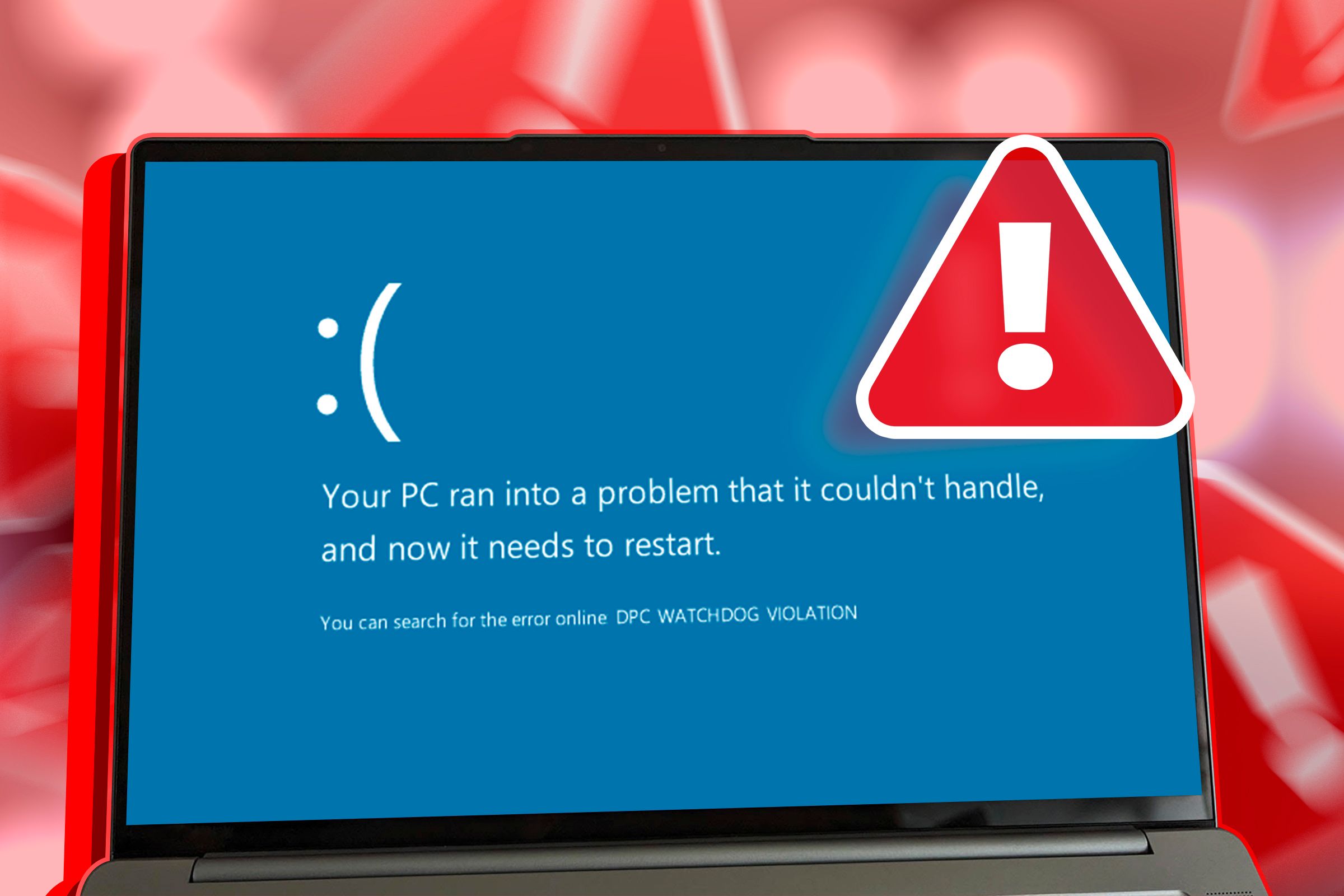
CrowdStrike's Recent Downtime Echoes the Infamous Y2K Bug: A Modern-Day Tech Scare

CrowdStrike’s Recent Downtime Echoes the Infamous Y2K Bug: A Modern-Day Tech Scare
Quick Links
- The Y2K Scare: A Brief History
- The Outage Strikes And Everything Goes Down
- What Caused the Internet to Fall Apart?
- What Y2K Taught Us And CrowdStrike Reminded Us
- Are We Any Better Prepared for Something Like This?
- We’re More Than Just One Outage Away From The Dark Ages
Around the turn of the millennium, the big story was the Y2K bug. This problem was supposed to be the source of massive computer outages worldwide. How ironic was it that I’d see shades of Y2K all over again on a random Friday morning? Let me explain.
The Y2K Scare: A Brief History
When early computer systems were programmed, they used two digits to represent the year in their date format. Storage efficiency was a concern, and halving the amount of space needed for the year was a major win for programmers.
In many early systems, date formats like 02/07/66 were commonly used to represent dates like July 2nd, 1966. The big deal was that removing the “19” before the “66” meant that when the clocks ticked over on January 1st, 2000, the programs were likely to start detecting the year “1900,” leading to widespread chaos.
The date problem was pervasive and not just limited to ancient systems. Because earlier systems used a two-digit year format, newer ones adopted the same format for compatibility . As a result, going into the year 2000, systems spanning industries like banking to government were going to run into a massive problem that people called “The Y2K Bug .”
Fixing it meant changing the existing systems to make them “Y2K Compliant,” which was just a fancy way to say that they shifted the dates to use four digits instead of two. When the year did roll over, fallout from the Y2K bug was minimal, and most systems remained working without even being upgraded.
The Outage Strikes And Everything Goes Down

Lucas Gouveia / Cianna Garrison / How-To Geek
Between the 18th and 19th of July 2024, a situation very similar to what experts in the early millennium predicted would happen came to pass, although the underlying cause was entirely different. Millions of users around the world woke up to their machines blue-screening. Not only did it affect PC systems, but it was widespread enough to take out ATMs, point-of-sale services, hospitals, airlines, and so much other modern technology that, for a moment, people felt like they were in the dark ages.
Immediately, the first thing that came to my mind were flashbacks of people talking about the Y2K Bug . This was exactly what experts said would happen, but there was a significant twist. In the early millennium, not everyone had smartphones in their pockets.
Now, with our global world so intimately connected, an outage like CrowdStrike doesn’t just take out ATMs, government databases, and business machines. It breaks servers that keep web pages online and potentially even access points people use to get mobile internet.
What Caused the Internet to Fall Apart?
CrowdStrike is a company that provides cloud-based security for several thousand companies. Its clients include Fortune 500 companies, banks, and others around the world. CrowdStrike’s updates are pushed out to clients after testing, but in this particular case, an update containing “problematic content data “ was pushed out to users, causing their systems to crash.
It first started with 911 centers and transportation hubs reporting issues with their systems late Thursday. By early Friday morning, the systems for airports, banks, and even parts of the White House were facing outages. Federal agencies got involved, suspecting a cyberattack, but it turned out to be a bit of bad code, leading to a widespread outage and potentially costing clients multiple billions of dollars in lost business.
What Y2K Taught Us And CrowdStrike Reminded Us

wavebreakmedia/Shutterstock.com
We’re a highly technological society. The internet gives us the power to find anything we’re looking for with just a few keystrokes. It also connects us to friends who may be in completely different time zones. It’s how we read, get the news, interact, and work, and as convenient as it is, being this dependent on technology has its drawbacks .
Many businesses don’t have protocols in place to deal with a complete loss of service from their business systems, since computers are generally reliable. The CrowdStrike outage reminds us that many businesses around the world are highly dependent on computer systems. It should also suggest to these businesses that they have backup systems just in case.
Y2K made the world more hesitant to adopt technology, but 24 years since then, we’ve changed our outlook on what technology offers us, both in our commercial and personal lives. During the Y2K era, most systems had redundancies and fallbacks in case the systems failed. Today, many of our failsafes are cloud-based, but they’re just as useless if the terminal cannot access the cloud.
One of the things that made Y2K a lot less scary to those of us who were alive during the era was the amount of information out there about the problem. Anyone who was alive and involved in tech could tell you what the Y2K bug was and what it could potentially do. The lack of transparency and awareness of the problem was partially the reason why the CrowdStrike outage was so scary. For a few hours after it started, people thought it was a malware or terrorist cyber-attack.
Are We Any Better Prepared for Something Like This?
If there’s one thing that the CrowdStrike outage highlighted, it’s that we are unprepared for if it happens again. Despite the assurances from CrowdStrike and other providers, there will always be a chance that this catastrophe will repeat itself. It also highlights the lack of oversight that the tech security ecosystem has and raises salient questions about the reliability of some of our most critical systems. This may lead to regulators examining the sector more closely .
However, it also underlines the lack of response time in dealing with a system-wide threat like this. As a cybersecurity firm, it’s ironic that CrowdStrike would serve as an example of what a cyber-terrorist attack may look like. It’s both a wake-up call and a warning that we should probably listen to.
We’re More Than Just One Outage Away From The Dark Ages
While the CrowdStrike outage showed us how dependent we are on tech , many businesses remained unaffected. It would take several of these outages in concert to bring down the global internet. However, we should still be wary. There’s nothing wrong with enjoying tech, but having a backup plan should always be at the back of our minds.
Also read:
- [New] Unveiling the Power of Luminance in HDR Landscapes
- [Updated] 2024 Approved Adeptly Archive Your Fb Friends' Lives in Seconds
- [Updated] The How-To Utilizing WhatsApp's Audio Messaging
- Easiest Guide How to Clone Nubia Z50S Pro Phone? | Dr.fone
- Encodeur MKV Idéal Pour Une Haute Qualité De Vidéo
- Highest Quality Images in 4K with These Cameras
- How to retrieve erased videos from Vivo V29e
- Maximize C270 HD Functionality via New Driver for W11
- Syma X5C Demystified The Ideal Drone for Budding Pilots for 2024
- The 6 Best SIM Unlock Services That Actually Work On Your Vivo S18 Pro Device
- The Art of Subtle Sound Dimming in Productions for 2024
- Title: CrowdStrike's Recent Downtime Echoes the Infamous Y2K Bug: A Modern-Day Tech Scare
- Author: Mark
- Created at : 2024-12-23 00:04:31
- Updated at : 2024-12-24 21:39:31
- Link: https://some-guidance.techidaily.com/crowdstrikes-recent-downtime-echoes-the-infamous-y2k-bug-a-modern-day-tech-scare/
- License: This work is licensed under CC BY-NC-SA 4.0.